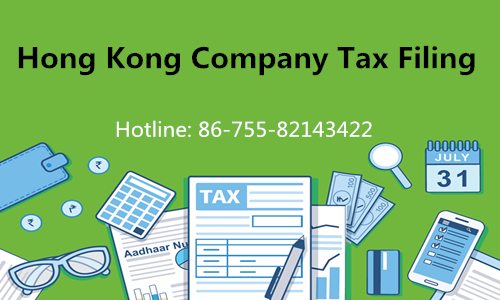The tax system in Hong Kong is different from that of in mainland China. Hong Kong enjoys independent public finance, and no tax revenue is handed over to the Central Government in China. The taxation in Hong Kong is generally considered to be simple, transparent and straightforward among jurisdictions in the world.
Taxes, which are collected through the Inland Revenue Department (IRD), can be generally classified as:
(1) Direct tax – including salaries tax, property tax and profits tax;
(2) Indirect tax – including stamps duty, betting duty and others.
Profits tax, an income tax on corporations constituted the largest source of tax collected by the government, followed by Salaries Tax, an income tax on individuals.
I. Income Tax
Unlike most countries which apply both residential jurisdiction and territorial jurisdiction in determining the tax liability of a person, Hong Kong uses only the territorial source jurisdiction and disregards the concept of residence. Thus, only profits sourced in Hong Kong would be taxable whereas a person's overseas income will not be taxable. (As an exception, certain kinds of worldwide deemed trading receipts will be taxable for non-residents.)
II. Salaries Tax
Salaries tax is a type of income tax that is levied in Hong Kong, chargeable on income from any office, employment and pension for a year of assessment arising in or derived from the territory. Salaries tax is also charged on the unrealized capital gain of shares or options granted as part of an employee share scheme that are subject to a vesting period. Events that trigger tax are when the vesting period ends or when the employee leaves Hong Kong.

III. Profits Tax
In Hong Kong, profits tax is an income tax chargeable to business carried on in Hong Kong. Applying the territorial taxation concept, only profits sourced in Hong Kong are taxable in general. Capital gains are not taxable in Hong Kong, despite it is always arguable whether an income is capital in nature. The persons chargeable to profits tax includes corporations, partnerships, trustees, and sole proprietors.
IV. Property Tax
Property Tax is levied on the income from the letting of immovable property in Hong Kong. Property tax carries an immaterial proportion of the revenue of the government. The tax rules are straightforward and simple. Both individuals or corporate owners are liable to Properties Tax.
V. Stamp Duty
Stamp Duty is collected upon existence of certain transactions in Hong Kong. The three major types of transactions that attract stamp duties are transfers of Hong Kong immovable properties, transfers of Hong Kong shares and leases of immovable properties. Stamp Duties are chargeable on dutiable instruments.
Contact Us
If you have further inquires, please do not hesitate to contact Tannet at anytime, anywhere by simply visiting Tannet’s website english.tannet-group.com, or calling Hong Kong hotline at 852-27826888 or China hotline at 86-755-82143422, or emailing to tannet-solution@hotmail.com. You are also welcome to visit our office situated in 16/F, Taiyangdao Bldg 2020,Dongmen Rd South, Luohu, Shenzhen, China, or Unit702-703, 7/F, Fourseas Bldg, 208-212, Nathan Rd, Jordan, Hong Kong.
Previous:Hong Kong Company Audit
Next:Hong Kong Certified True Copy